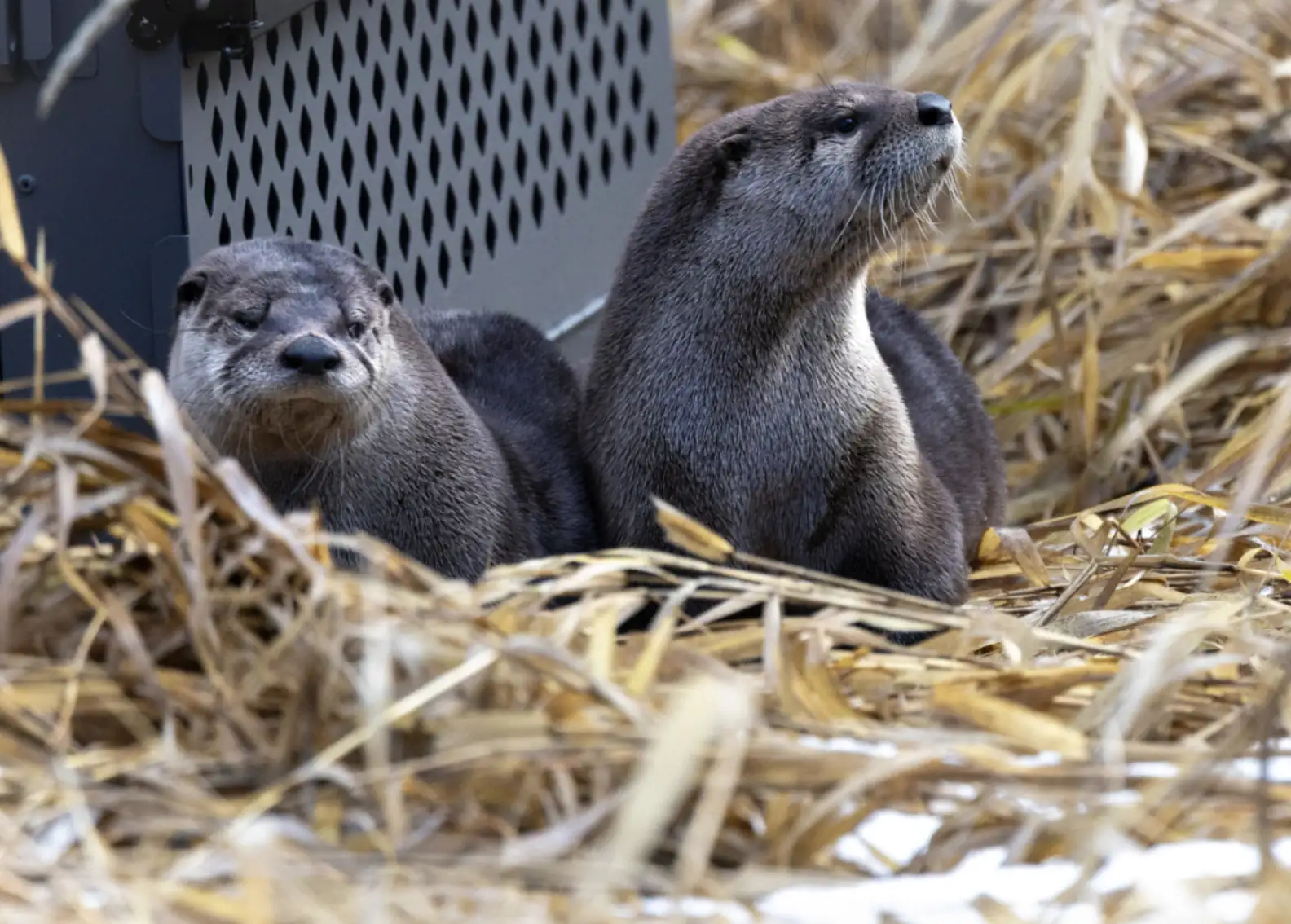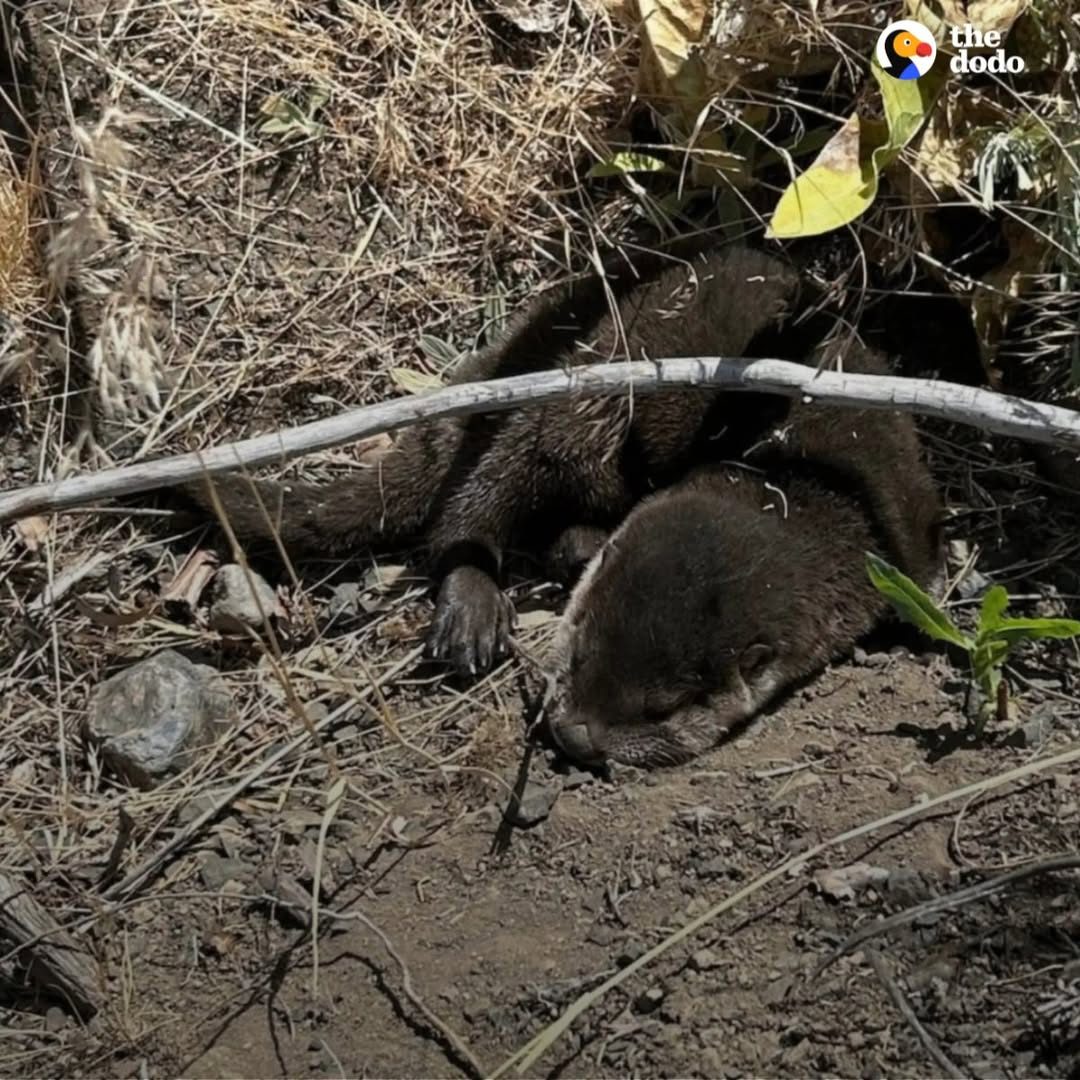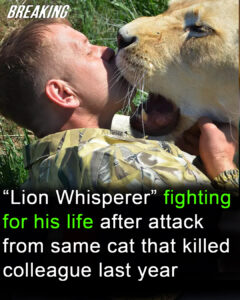Last June, while making his rounds at Oregon’s Cove Palisades State Park, ranger Tyler Banks noticed something odd in a roadside ditch: a fuzzy brown ball of fur. Curious, he leaned closer — and realized he was staring at two tiny, orphaned otter pups fighting for survival.
A Rescue In Motion
Banks quickly called in a state police wildlife officer, who rushed the fragile pups to Think Wild, a local wildlife rescue and rehabilitation center.
At the hospital, the young otters were examined, rehydrated, and given the urgent care they needed. But saving their bodies was only part of the challenge — rescuers had to make sure the pups didn’t grow too comfortable around people.
“River otters are highly intelligent and can easily become habituated to humans,” explained Pauline Hice, Think Wild’s director of wildlife rehabilitation. “Animals that become comfortable around humans cannot safely or humanely be returned to the wild.”
So instead of bonding with humans, the sisters leaned on each other, curling up together for comfort.
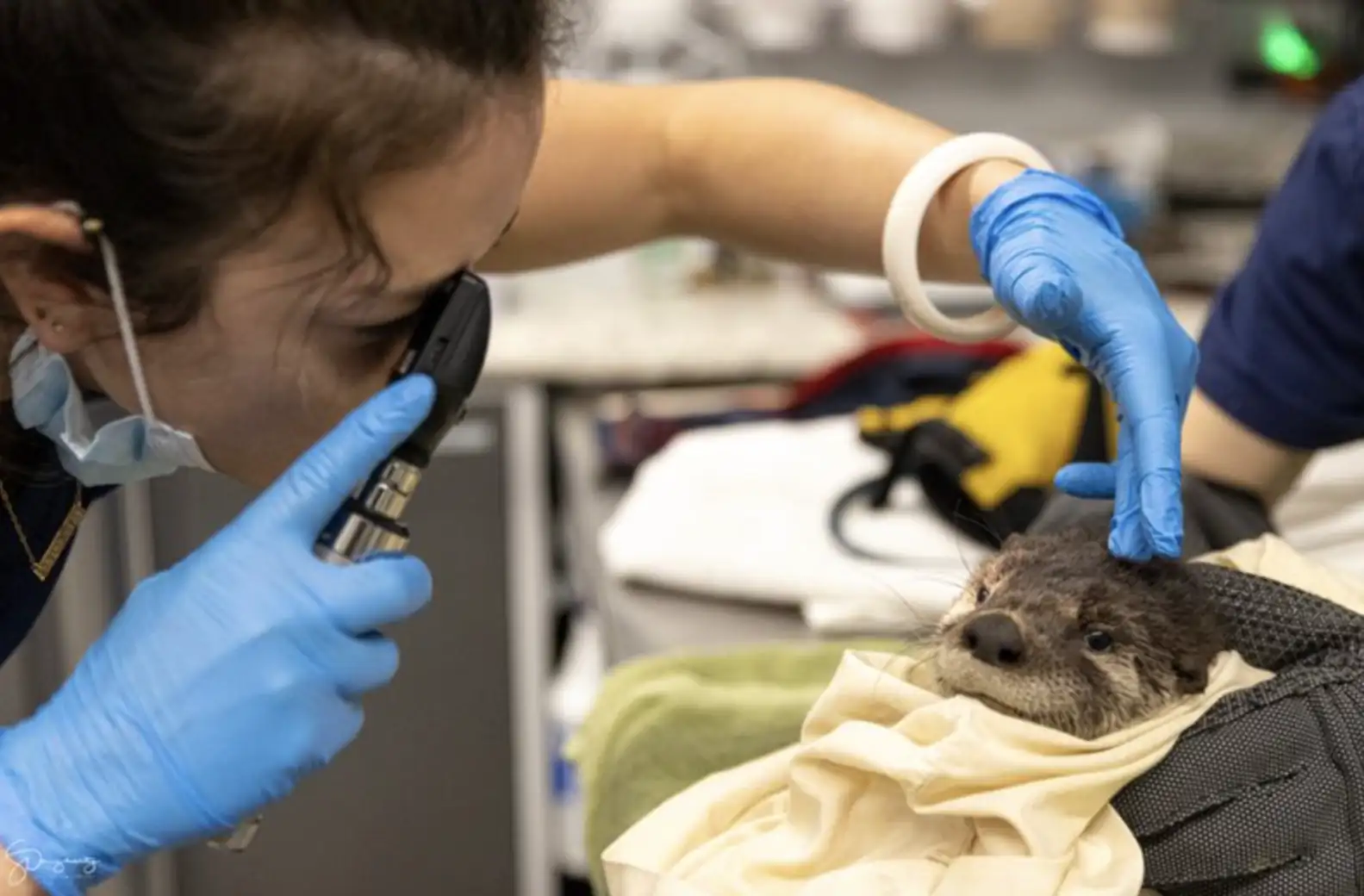
Learning To Be Wild
Once strong enough, the pups were transferred to the Wildlife Center of the North Coast, where they spent months honing the survival skills they’d need to thrive in the wild.
By autumn, experts determined the duo was ready. They were returned to Think Wild for a carefully planned soft release in the very habitat where they were first discovered.
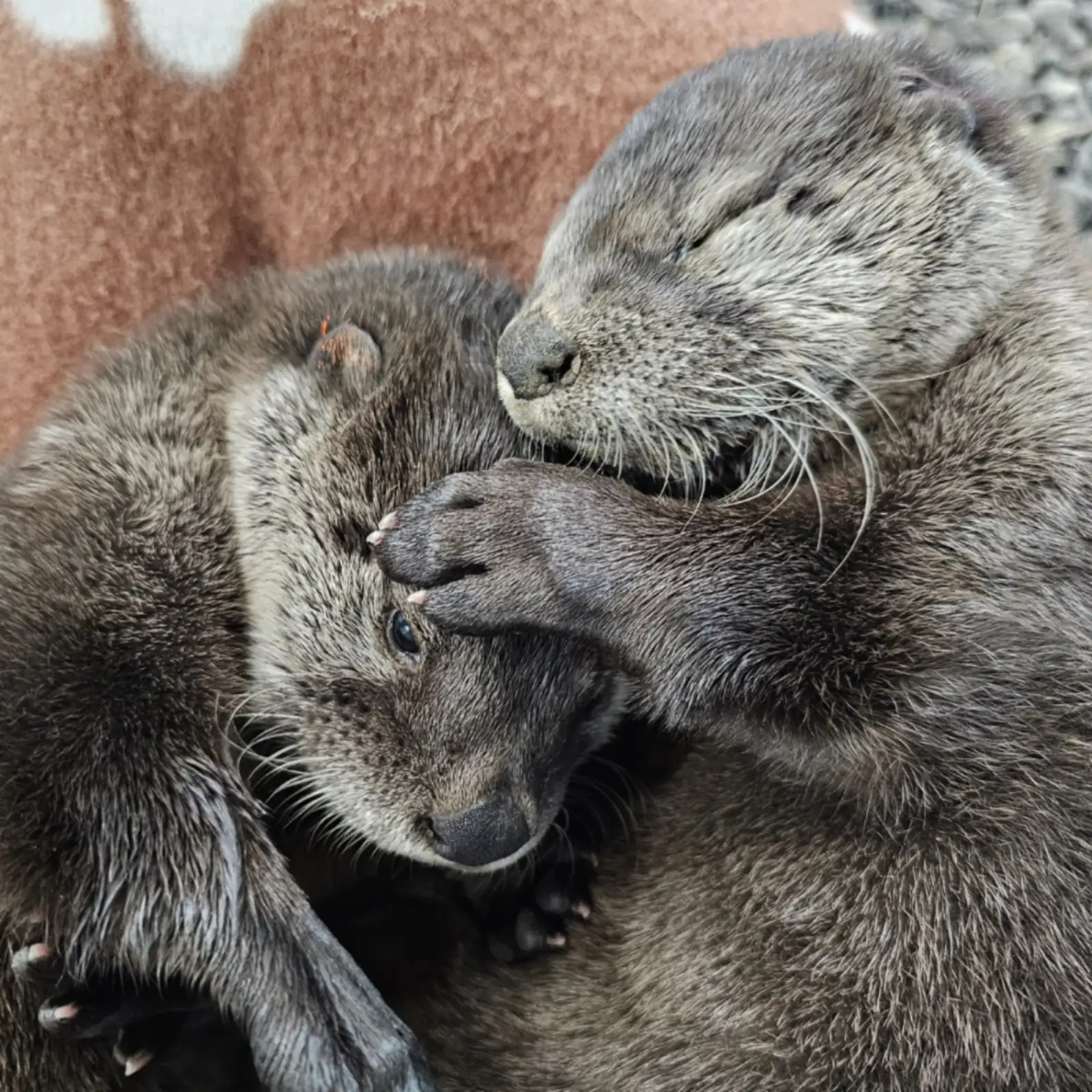
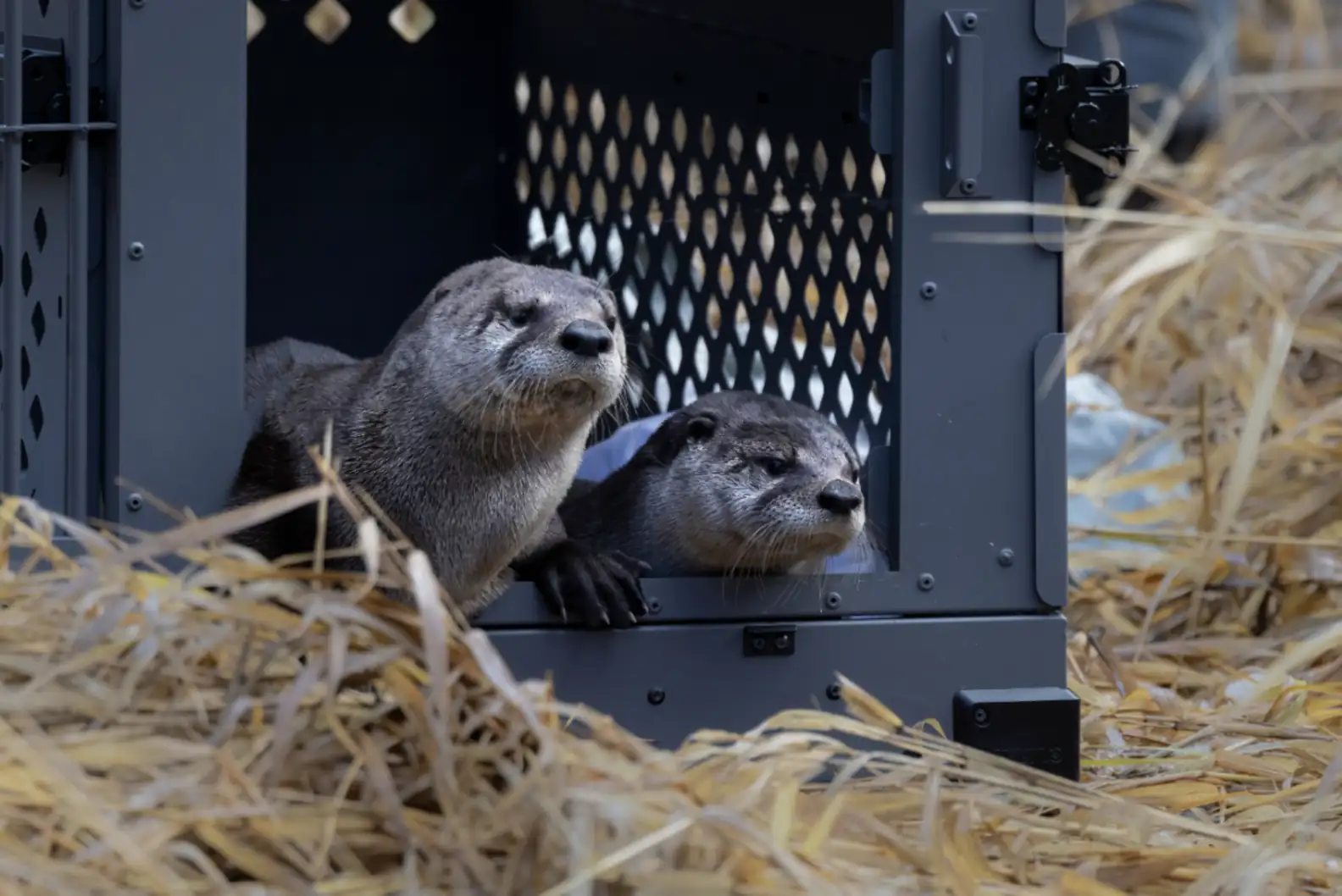
A New Beginning
Rescuers provided the otters with a temporary den and supplemental food through a discreet port designed to prevent human association. This gentle transition gave the pups a better chance at independence.
“By providing this additional support, we’re giving these otters the best possible chance at a successful return to the wild,” Hice said.
Finally, the day came. Staff opened the release area, and the two otters scurried into the water — free once more.
“Now, these two otter pups are back where they belong,” Think Wild celebrated. “Exploring their new river home!”
